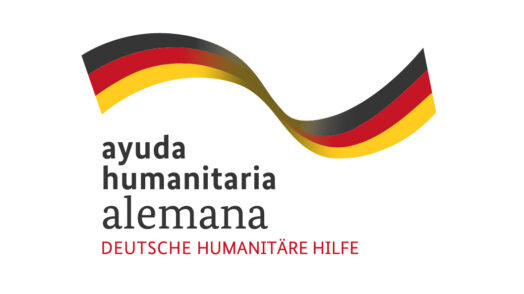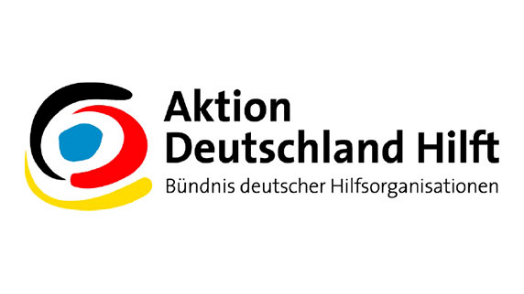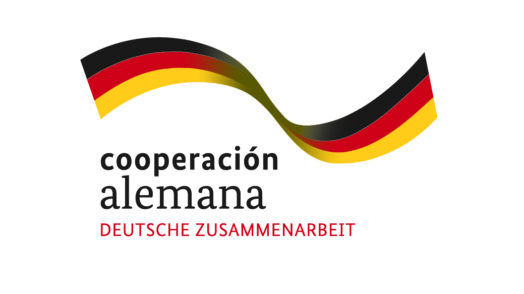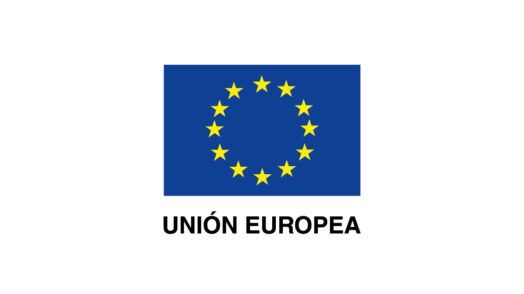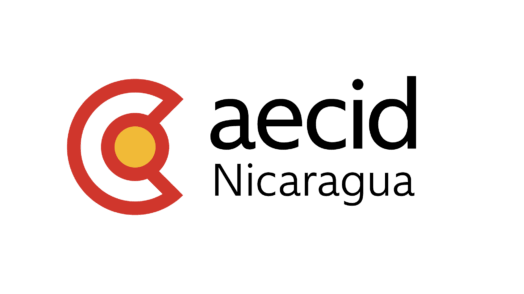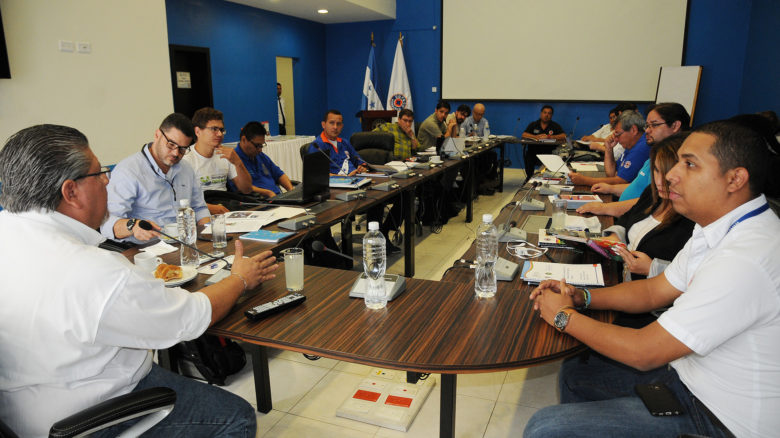
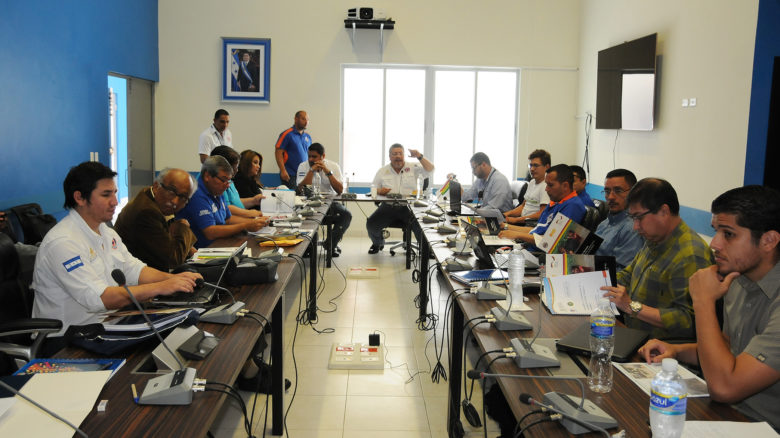
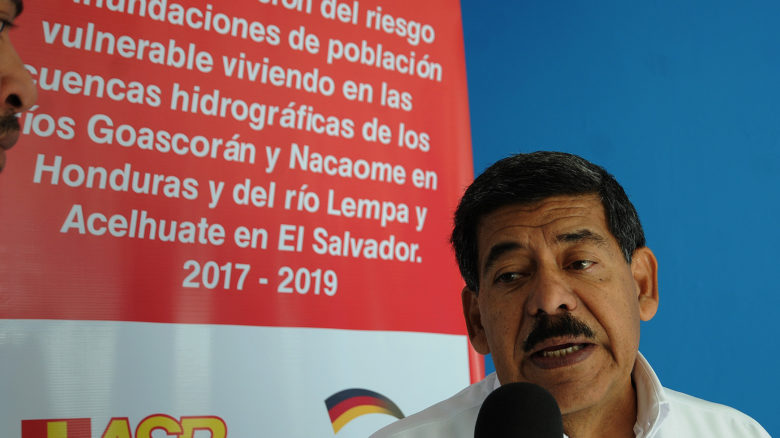
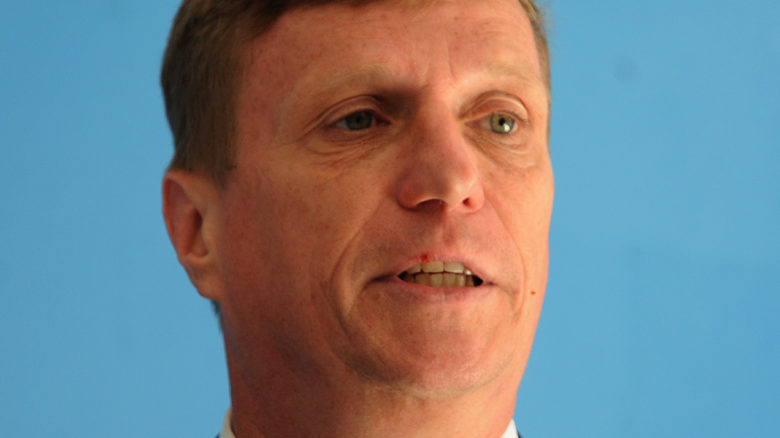
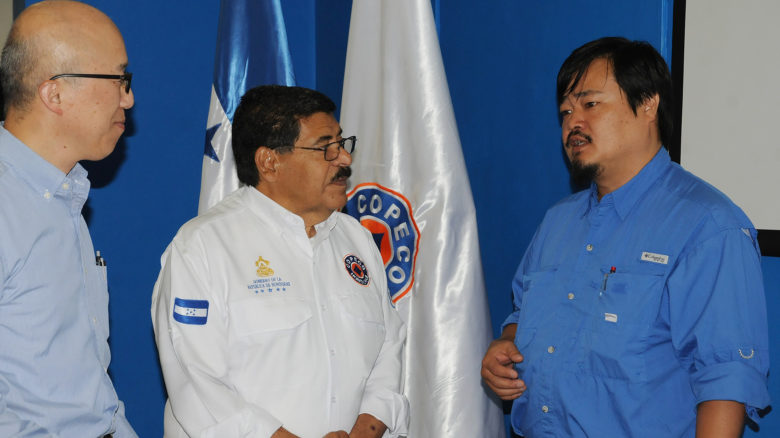
Minimizing deaths from rainfall is the main objective of EWS protocols in southern Honduras
On February 21 and 22, 2018, the "National Workshop for the revision of Warning Thresholds in the main rivers of Honduras" was held. In order to review and calibrate the current warning protocols that will be used in the upcoming 2018 rain and hurricane season.
Commanded by the Permanent Commission on Contingencies (COPECO), as the governing body of the National Risk Management System (SINAGER) legislation, the staff of the institutions working on the subject participated in the "National Workshop on the Revision of Warning Thresholds of the Main Rivers in Honduras". With the main purpose of reducing the loss of human lives during the rainy season, personnel from the institutions that monitor the courses of the country's largest rivers began to review the action protocols of the Early Warning System, which will be implemented in the communities most vulnerable to flooding in the southern area of Honduras.
The meeting aims to achieve flood risk reduction for the very vulnerable population living in poverty in the watersheds of the Goascorán, Nacaome, Lempa de Honduras, Ulúa and Chamelecón rivers, by reviewing and calibrating the current warning protocols to be used in the upcoming 2018 rain and hurricane season.
The workshop is being held within the framework of the project "Reduction and prevention of negative impacts, as well as emergency humanitarian situations resulting from flood disasters on very vulnerable populations living in poverty in the watersheds of the Goascorán, Nacaome, Lempa and Acelhuate rivers in Honduras and El Salvador, in Central America, through disaster preparedness and prevention in its component implementation of early warning systems for floods", executed by multiple partners from May 2017 to December 2019, with funds from the Ministry of Foreign Affairs of the Government of the Federal Republic of Germany and the Arbeiter-Samariter-Bund (ASB) after a management developed by the Coordination Center for the Prevention of Disasters in Central America (CEPREDENAC).
The project has a budget of more than 2 million euros, about 69 million lempiras, which will have as direct beneficiaries approximately 46,680 people from the communities located on the banks of the rivers mentioned above.
Technical personnel from the Ministry of the Environment (Mi Ambiente), the Commission for the Control of Floods in the Sula Valley, hydrologists from the "El Cajón" Hydroelectric Plant, professionals from the COPECO Early Warning System (SAT) and personnel from other important risk management institutions in Honduras are participating in the workshop.
Excellent results
Carlos Cordero, COPECO's deputy commissioner, upon opening the event, said that the workshop prepares institutions to minimize the loss of human lives and added "We hope that the good result of the Early Warning Systems will help us achieve this objective".
The head of COPECO's Early Warning System, Juan José Reyes, said the performance of the systems has improved and the results are reflected at the end of the rainy season with a decrease in loss of life.
"Improving Early Warning Systems allows us to reduce vulnerability, the population must also do its part by following the suggestions of the authorities, because the goal is for us to achieve a statistic of zero deaths," Reyes said.
On his part, the German Consul in Honduras, Sebastian Werther, highlighted that "These workshops are extremely important, especially in countries such as Honduras, considered one of the most vulnerable due to rains and landslides. For this reason, we support the work done by COPECO, because we are aware that it is a very active institution in the field of Early Warning Systems".
Mr. Werther stressed that in the time he has spent in Honduras, he has been able to see that the country and COPECO have made considerable progress in prevention.
"They are very well prepared with very modern equipment, with very professional and well trained human resources, this makes me very content and impressed," stressed the German diplomat.

